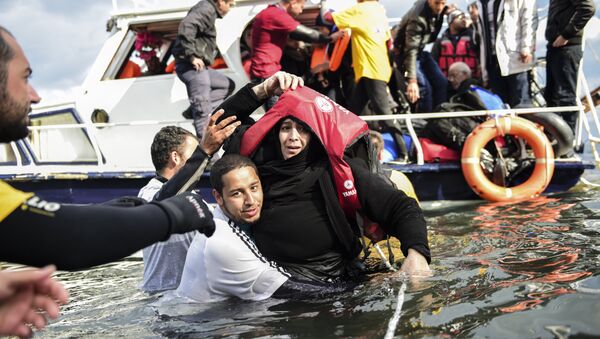Many are struggling to integrate the migrants into their cities or provide housing, health and education services, which are requirements of the Geneva Convention, as far as refugees are concerned. Greece and Italy have borne the brunt of the crisis and have struggled to deal with the tide of migrants in towns and villages up and down both countries.
Our search & rescue ship has left italy for 5th mission. 1100+ #refugees & #migrants saved so far pic.twitter.com/1VWX7zp38B
— Save the Children UK (@savechildrenuk) 15 October 2016
The EU Asylum, Migration and Integration Fund (AMIF) was set up for the period 2014-20, with a total of US$3.41 billion to promote the "efficient management of migration flows and the implementation, strengthening and development of a common Union approach to asylum and immigration."
The fund is intended to go towards strengthening and developing the Common European Asylum System; supporting legal migration to EU States in line with the labor market needs and promoting the effective integration of non-EU nationals; returning those denied asylum to their home countries; and making sure that EU States which are most affected by migration and asylum flows can count on solidarity from other EU States.

Housing Crisis
However, many mayors and city representatives say the money is being sent from Brussels to national governments that are spending it on border control only and not pushing it down the chain to where money is needs at municipal level.
"The refugee and migrant issue in Bulgaria is primarily approached and addressed as an issue of national security, rather than a humanitarian issue," the UNHCR's representative in Bulgaria Mathijs le Rutte told EU Observer.
According to the European United Left/Nordic Green Left/European Parliamentary Group: "mayors are stepping in to support refugees where member states are failing."
Major cities across Europe are also suffering from housing cries. In Germany, according to Michael Voigtlander, a professor at the Cologne Institute of Economic Research, tens of thousands are competing with young Germans for what little housing stock is available.
"Refugees tend to move to big cities such as Berlin, Hamburg and Frankfurt, where the housing markets are even tighter," he told Britain's FT newspaper.



